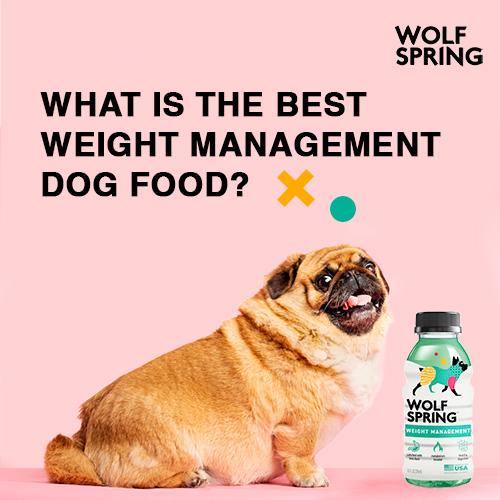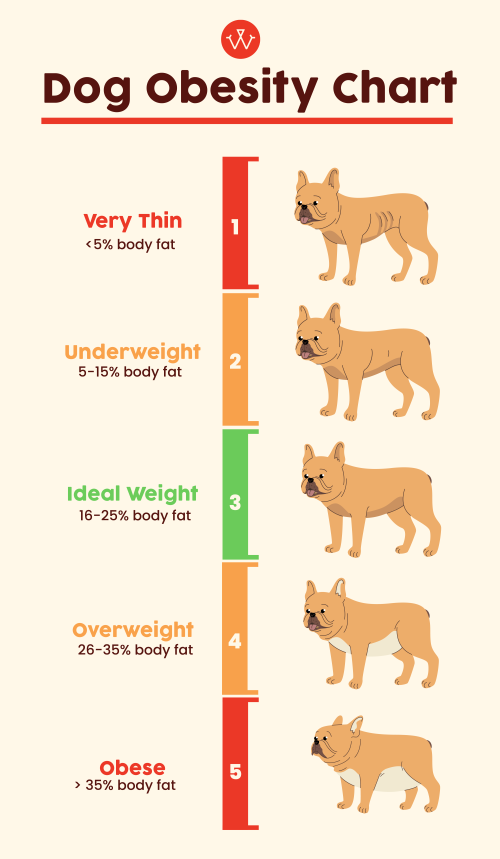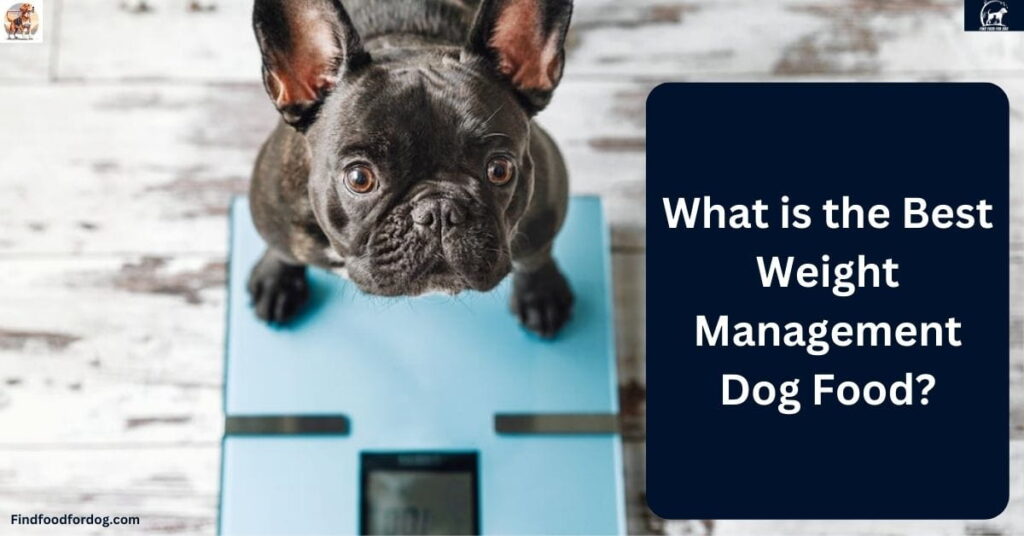The best weight management food for dogs includes high-quality protein, low calories, and fiber-rich ingredients. Look for foods specifically formulated for weight control.
Maintaining a healthy weight is crucial for your dog’s overall well-being. Obesity in dogs can lead to serious health issues such as diabetes, joint problems, and heart disease. Choosing the right food plays a vital role in weight management. High-protein, low-fat dog foods help build muscle while reducing unnecessary fat.
Fiber-rich ingredients ensure your dog feels full without consuming too many calories. It’s essential to consult with your veterinarian before making any changes to your dog's diet. They can recommend specific brands or formulations that cater to your dog’s unique needs. Investing in quality weight management food will contribute to a longer, healthier life for your furry friend.
Introduction To Weight Management In Dogs
Weight management is vital for your dog's health. A healthy weight helps dogs live longer. It also reduces risks of diseases. Understanding weight management can improve your dog's quality of life. Let's explore why weight matters and what causes weight gain.
The Importance Of A Healthy Weight
Maintaining a healthy weight is crucial for dogs. Here are some key benefits:
- Increased Lifespan: Healthy dogs often live longer.
- Reduced Health Issues: Less risk of diabetes, arthritis, and heart disease.
- Improved Mobility: Healthy weight means better movement.
- Enhanced Quality of Life: Active dogs are happier and more playful.
Common Causes Of Weight Gain In Dogs
Several factors lead to weight gain in dogs. Understanding these can help you manage their weight.
| Cause | Description |
|---|---|
| Overfeeding | Feeding too much food can lead to obesity. |
| Lack of Exercise | Not enough activity can cause weight gain. |
| Age | Older dogs may gain weight due to slower metabolism. |
| Medical Conditions | Conditions like hypothyroidism can affect weight. |
| Genetics | Some breeds are more prone to obesity. |
Recognizing these causes is the first step. It helps you take action for your dog's weight management.

Assessing Your Dog's Weight
Assessing your dog's weight is crucial for their health. A healthy weight helps prevent diseases. It also ensures your dog stays active and happy. Use simple methods to evaluate your dog's weight.
Identifying Overweight And Obesity
Recognizing if your dog is overweight or obese is essential. Use the following signs:
- Ribs are hard to feel.
- Waist is not visible from above.
- Abdomen hangs down.
- Dog is less active than usual.
To classify your dog’s weight:
| Weight Category | Description |
|---|---|
| Underweight | Ribs visible, very thin appearance. |
| Ideal Weight | Ribs easily felt, waist visible. |
| Overweight | Ribs hard to feel, waist not visible. |
| Obese | Ribs not felt, significant fat deposits. |
When To Consult A Vet
Consult your vet if you notice weight changes. Seek help if your dog:
- Gains or loses weight quickly.
- Shows signs of lethargy.
- Has difficulty moving.
- Experiences changes in appetite.
Take advice from Pet Expert Dr Marty
ESA Pet is an online service that helps you get a legitimate ESA letter
Pet vitamin supplements and grooming products
Your vet can create a weight management plan. Regular check-ups help monitor your dog's progress. A healthy weight leads to a longer, happier life.
Key Nutrients For Weight Management
Managing your dog's weight requires careful attention to their diet. Certain nutrients play a crucial role in keeping your dog healthy and fit. Focus on these key nutrients: protein and fiber. Each nutrient has unique benefits that help maintain a healthy weight.
Protein: Building Blocks For Muscle
Protein is essential for your dog's overall health. It helps build and maintain muscle mass. Muscle burns more calories than fat, aiding weight management.
High-quality protein sources include:
- Chicken
- Turkey
- Fish
- Beef
Choose dog food with at least 20-30% protein. This ensures your dog gets enough muscle-building nutrients.
Fiber: Keeping Your Dog Full Longer
Fiber is another important nutrient for weight management. It helps your dog feel full, reducing the urge to snack. Fiber also supports healthy digestion.
Good sources of fiber for dogs include:
- Sweet potatoes
- Carrots
- Green beans
- Pumpkin
Look for dog food with at least 5-10% fiber. This will help control hunger and promote a healthy weight.
Top Healthy Picks For Weight Management
Choosing the right food is key for your dog's weight management. Healthy options help maintain a balanced diet. They provide essential nutrients without extra calories. Here are some of the best choices for your furry friend.
Dry Food Options
Dry dog food offers convenience and nutrition. Look for options with high protein and low fat. Here are some top picks:
| Brand | Key Features | Protein Content | Calories per Cup |
|---|---|---|---|
| Hill's Science Diet | Low fat, high fiber | 20% | 300 |
| Blue Buffalo Life Protection | Real meat, no fillers | 24% | 350 |
| Royal Canin Weight Control | Targeted nutrition | 22% | 280 |
Wet Food Alternatives
Wet food can be more appealing for picky eaters. It often contains more moisture, which aids hydration. Here are some healthy wet food options:
- Wellness CORE Grain-Free – High protein, low fat.
- Purina Pro Plan Savor – Real meat as the first ingredient.
- Canidae PURE Limited Ingredient – Fewer ingredients, ideal for sensitive stomachs.
Choose wet food with low calories and high nutrients. Combine it with dry food for variety. This helps keep your dog satisfied and healthy.
Homemade Diets For Weight Control
Creating a homemade diet for your dog can help manage their weight effectively. You control the ingredients and portions. This approach ensures your pet eats healthy, balanced meals. It’s a great way to provide nutrition tailored to your dog's needs.
Balanced Recipes To Try
Here are some easy recipes to consider:
- Chicken and Vegetable Stew
- 1 cup of cooked chicken, shredded
- 1/2 cup of carrots, diced
- 1/2 cup of green beans, chopped
- 1/4 cup of brown rice
- 1 cup of low-sodium chicken broth
- Turkey and Sweet Potato Mix
- 1 cup of ground turkey
- 1 cup of sweet potatoes, cooked and mashed
- 1/2 cup of peas
- Beef and Quinoa Bowl
- 1 cup of lean ground beef
- 1/2 cup of cooked quinoa
- 1/2 cup of spinach, chopped
Ingredients To Include And Avoid
Choosing the right ingredients is essential. Below is a list of ingredients to include and avoid:
| Include | Avoid |
|---|---|
| Lean meats (chicken, turkey, beef) | Fatty meats (bacon, sausage) |
| Fruits (blueberries, apples) | Grapes and raisins |
| Vegetables (carrots, green beans) | Onions and garlic |
| Whole grains (brown rice, quinoa) | White rice and bread |
| Healthy fats (olive oil, fish oil) | Butter and margarine |
Homemade Dog Food
Make sure to consult your vet before changing your dog's diet. This helps ensure your pet gets all the necessary nutrients. A balanced homemade diet can keep your dog happy and healthy.

Supplements To Support Weight Loss
Weight management for dogs involves more than just diet. Supplements can play a vital role. They help in enhancing metabolism and promoting overall health. Consider incorporating these key supplements for effective weight loss.
Omega Fatty Acids
Omega fatty acids are essential for your dog's health. They support weight loss by:
- Reducing inflammation
- Improving skin and coat health
- Boosting metabolism
Common sources of Omega fatty acids include:
| Source | Benefit |
|---|---|
| Fish oil | Rich in Omega-3, promotes heart health |
| Flaxseed oil | Supports skin health and reduces shedding |
| Chia seeds | High in fiber, aids digestion |
Adding Omega fatty acids to your dog's diet can help achieve a healthy weight.
Probiotics For Gut Health
Probiotics are beneficial bacteria. They support your dog's gut health. A healthy gut can aid weight loss by:
- Enhancing nutrient absorption
- Reducing bloating
- Balancing digestive enzymes
Consider these probiotic sources:
- Yogurt (unsweetened)
- Kefir
- Probiotic supplements
Probiotics can help improve your dog's overall health. They also assist in maintaining a healthy weight.
Exercise: A Vital Component Of Weight Management
Keeping your dog fit is essential for their health. Exercise helps maintain a healthy weight. It also improves your dog's mood and energy levels. Regular activity reduces the risk of obesity-related diseases.
Daily Exercise Recommendations
Every dog needs different amounts of exercise. Breed, age, and health affect their needs. Here are general guidelines:
| Dog Size | Recommended Daily Exercise |
|---|---|
| Small Dogs | 30 minutes |
| Medium Dogs | 60 minutes |
| Large Dogs | 90 minutes |
Always adjust exercise based on your dog's individual needs. Older dogs may need lighter activities. Puppies require short bursts of playtime.
Fun Activities To Keep Your Dog Active
Make exercise enjoyable for your dog. Here are some fun activities:
- Daily Walks: Take your dog on a new route.
- Fetch: A great game to burn energy.
- Agility Training: Set up an obstacle course.
- Swimming: Perfect for hot days.
- Dog Parks: Let them socialize and run.
Rotate activities to keep things interesting. Your dog will love the variety and stay active.
Monitoring Progress And Adjusting The Diet
Tracking your dog's weight is crucial for effective weight management. Regular monitoring helps you see how your dog's diet affects their weight. Adjustments to the feeding plan may be necessary based on these observations. This section covers setting realistic goals and knowing when to change your dog's diet.
Setting Realistic Goals
Establishing attainable goals is key. Unrealistic expectations can lead to frustration. Here are some tips for setting realistic weight goals:
- Consult your veterinarian for ideal weight ranges.
- Aim for a gradual weight loss of 1-2% per week.
- Focus on small, manageable goals rather than drastic changes.
- Track progress through regular weigh-ins.
Use a chart to visualize your dog's weight journey:
| Week | Weight (lbs) | Goal Weight (lbs) |
|---|---|---|
| 1 | 50 | 49 |
| 2 | 49 | 48 |
| 3 | 48 | 47 |
When To Adapt The Feeding Plan
Adjustments to your dog's feeding plan may be needed. Look for these signs:
- Plateau in weight loss for more than two weeks.
- Significant weight gain despite following the plan.
- Change in activity levels or health status.
Monitor your dog's behavior and energy levels. Increased lethargy may indicate a need for dietary change. Consult your veterinarian for tailored advice.
Make adjustments gradually. Sudden changes can upset your dog's stomach. Always prioritize your dog's health and well-being.
Conclusion: Maintaining A Healthy Lifestyle For Your Dog
Maintaining a healthy lifestyle for your dog is crucial. A balanced diet and regular exercise are vital for their well-being. This section highlights important factors for effective weight management.
The Role Of Consistency
Consistency plays a key role in your dog's weight management. A stable routine helps your dog understand meal times and exercise schedules. Here are some tips for maintaining consistency:
- Feed your dog at the same time daily.
- Use the same feeding method—measuring portions accurately.
- Stick to a regular exercise routine.
- Monitor weight regularly to track progress.
By following a consistent plan, your dog will adapt better. This leads to healthier habits over time.
Seeking Professional Advice
Consulting a veterinarian is important for your dog's health. They can provide tailored advice for your dog's dietary needs. Consider the following points:
- Schedule regular check-ups for health assessments.
- Discuss any weight concerns with your vet.
- Ask for recommendations on weight management foods.
- Get help with creating an exercise plan.
Professional guidance ensures you make informed decisions. This approach supports your dog's long-term health goals.

Frequently Asked Questions About Best Weight Management Food for Dogs
What Are The Best Foods For Dog Weight Management?
The best foods for dog weight management include high-protein, low-calorie options. Look for formulas specifically designed for weight control. Ingredients like lean meats, vegetables, and whole grains are ideal. Always consult your vet for personalized recommendations tailored to your dog's needs.
How Can I Help My Dog Lose Weight?
To help your dog lose weight, control their portion sizes. Incorporate regular exercise into their routine, such as daily walks or playtime. Choose low-calorie treats and avoid table scraps. Consulting with your veterinarian will provide tailored advice based on your dog's health and lifestyle.
Are Homemade Diets Good For Dog Weight Loss?
Homemade diets can be beneficial for dog weight loss. They allow you to control ingredients and portion sizes. Ensure that the diet is balanced and includes essential nutrients. Consulting a vet or pet nutritionist is crucial to avoid nutritional deficiencies.
What Ingredients To Avoid In Dog Weight Management Food?
Avoid foods high in fillers, artificial additives, and excessive carbohydrates. Ingredients like corn, wheat, and soy can contribute to weight gain. Steer clear of high-fat meats and sugary treats. Always check the ingredient list to ensure quality and nutritional value.
Conclusion: Best Weight Management Food for Dogs
Choosing the right weight management food for your dog is essential for their health. Quality ingredients and balanced nutrition promote a healthy weight. Always consult your veterinarian before making dietary changes. By prioritizing your dog's nutrition, you can ensure a happy and active life.
Keep your furry friend thriving with the best choices.




















